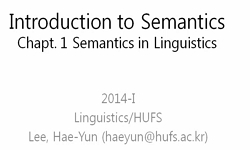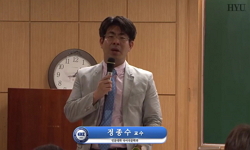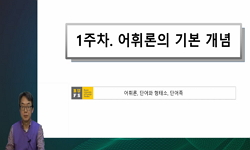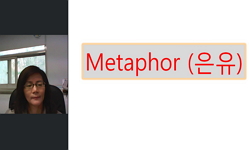The important issues concerning education for happiness can be summarized as follows: (i) the validity of happiness as an educational aim, (ii) the volition of students in being happy, (iii) the compatibility between study and happiness. The results o...
http://chineseinput.net/에서 pinyin(병음)방식으로 중국어를 변환할 수 있습니다.
변환된 중국어를 복사하여 사용하시면 됩니다.
- 中文 을 입력하시려면 zhongwen을 입력하시고 space를누르시면됩니다.
- 北京 을 입력하시려면 beijing을 입력하시고 space를 누르시면 됩니다.
https://www.riss.kr/link?id=A106008874
- 저자
- 발행기관
- 학술지명
- 권호사항
-
발행연도
2018
-
작성언어
-
- 주제어
-
KDC
373
-
등재정보
KCI등재
-
자료형태
학술저널
-
수록면
741-758(18쪽)
-
KCI 피인용횟수
3
- DOI식별코드
- 제공처
-
0
상세조회 -
0
다운로드
부가정보
다국어 초록 (Multilingual Abstract)
happiness can be sufficiently valid as an educational aim in that it has not been properly considered in Korean schooling up to now. (ii) the volitional activities of students can be put stress on in education for happiness because volitional activities accounts for about 40% of happiness, and genetic temperament and environmental factors are difficult to be controlled on their own. (ⅲ) whereas study may be difficult and strenuous, study can be compatible to the interests and pleasure of students in that happiness consists of both pleasure and meaning. Therefore both the volition of students and study become two important points of education for happiness. Though schools or teachers have to make a lot of efforts to improve the happiness of students, it is necessary to emphasize that the students happiness depends heavily on the following two factors in education for happiness: (i) their own choices and efforts and (ii) their realization of the meaning of study.
The important issues concerning education for happiness can be summarized as follows: (i) the validity of happiness as an educational aim, (ii) the volition of students in being happy, (iii) the compatibility between study and happiness. The results of reviewing these issues can be summarized as follows: (i) the improvement of students
happiness can be sufficiently valid as an educational aim in that it has not been properly considered in Korean schooling up to now. (ii) the volitional activities of students can be put stress on in education for happiness because volitional activities accounts for about 40% of happiness, and genetic temperament and environmental factors are difficult to be controlled on their own. (ⅲ) whereas study may be difficult and strenuous, study can be compatible to the interests and pleasure of students in that happiness consists of both pleasure and meaning. Therefore both the volition of students and study become two important points of education for happiness. Though schools or teachers have to make a lot of efforts to improve the happiness of students, it is necessary to emphasize that the students happiness depends heavily on the following two factors in education for happiness: (i) their own choices and efforts and (ii) their realization of the meaning of study.
참고문헌 (Reference)
1 구자억, "행복교육이란 무엇인가" 도서출판 신정 2015
2 Ben-Shahar, T., "해피어 : 하버드대 행복학 강의" 위즈덤하우스 2007
3 Seligman, M. E. P., "플로리시 : 웰빙과 행복에 대한 새로운 이해" 도서출판 물푸레 2011
4 이한, "정의란 무엇인가는 틀렸다" 미지북스 2012
5 White, J., "잘삶의 탐색 : 학교교육의 새로운 목적" 교육과학사 2014
6 류지한, "윤리학의 분류: R. M. Hare의 도덕 철학" 씨아이알 2017
7 Peters, R. S., "윤리학과 교육" 교육과학사 2003
8 김양현, "윤리학 강의" 철학과 현실사 2018
9 손영우, "욕구단계이론"
10 Dewey, J., "민주주의와 교육" 교육과학사 2007
1 구자억, "행복교육이란 무엇인가" 도서출판 신정 2015
2 Ben-Shahar, T., "해피어 : 하버드대 행복학 강의" 위즈덤하우스 2007
3 Seligman, M. E. P., "플로리시 : 웰빙과 행복에 대한 새로운 이해" 도서출판 물푸레 2011
4 이한, "정의란 무엇인가는 틀렸다" 미지북스 2012
5 White, J., "잘삶의 탐색 : 학교교육의 새로운 목적" 교육과학사 2014
6 류지한, "윤리학의 분류: R. M. Hare의 도덕 철학" 씨아이알 2017
7 Peters, R. S., "윤리학과 교육" 교육과학사 2003
8 김양현, "윤리학 강의" 철학과 현실사 2018
9 손영우, "욕구단계이론"
10 Dewey, J., "민주주의와 교육" 교육과학사 2007
11 문용린, "문용린의 행복교육" 리더스북 2014
12 Diener, E., "모나리자 미소의 법칙" 21세기북스 2008
13 김교환, "도덕교육과 행복교육" 강원대학교 출판부 2013
14 황경식, "덕윤리의 현대적 의의: 의무윤리학과 결과윤리가 상보하는 제 3 윤리의 모색" 아카넷 2017
15 최인철, "굿라이프: 내 삶을 바꾸는 심리학의 지혜" 21세기북스 2018
16 김기민, "교육의 목적과 이념 : 그 개념적 특징과 역사적 변천 탐구" 19 : 21-40, 2014
17 이홍우, "교육의 목적과 난점" 교육과학사 2016
18 김정래, "교육목적론" 학지사 2013
19 Levitt, S. D., "괴짜경제학" 웅진지식하우스 2007
20 "www.snuhappiness.kr"
21 "www. pursuit-of-happiness.org"
22 "ppc.sac.upenn.edu"
23 권석만, "[단행본] 긍정 심리학 : 행복의 과학적 탐구" 학지사 2008
24 MacIntyre, A., "Three rival versions of moral enquiry" University of Notre Dame Press 1990
25 Seligman, M. E. P., "The president’s address" 54 : 559-562, 1999
26 Duckworth, A. L., "The power of passion and perseverence" Simon & Schuster, Inc 2016
27 Haidt, J., "The happiness hypothesis: Finding modern truth in ancient wisdom" Basic Books 2006
28 Jackson, L., "Reconsidering happiness in the context of social justice education" 49 (49): 217-229, 2018
29 Lyubomirsky, S., "Pursuing happiness: The architecture of sustainable change" 9 : 111-131, 2005
30 Seligman, M. E. P., "Positive psychology : An introduction" 55 : 5-14, 2000
31 Lyubomirsky, S., "How to be happy: 행복도 연습이 필요하다" 지식노마드 2007
32 Noddings, N., "Happiness and education" Cambridge University Press 2005
33 Winch, C., "Education, autonomy and critical thinking" Routledge 2009
34 O’Brien, C., "Education for sustainable happiness and well-being" Routledge 2016
35 Dearden, R. F., "Education and the development of reason" Routledge & Kegan Paul Ltd 95-112, 1972
동일학술지(권/호) 다른 논문
-
- 학습자중심교과교육학회
- 마에무라카즈아키(Maemura Kazuaki)
- 2018
- KCI등재
-
보육교사가 지각한 원장의 서번트 리더십과 이직의도의 관계에서 자아탄력성의 매개효과
- 학습자중심교과교육학회
- 박봉환(Park BongHwan)
- 2018
- KCI등재
-
교육과정 통합 단원 개발과 KDB 모형: KDB 모형 활용의 특이점, 유용성 및 과제
- 학습자중심교과교육학회
- 박선미(Park Sun Mi)
- 2018
- KCI등재
-
방사선학과 대학생들의 학습스타일과 학업성취도의 상관성 연구
- 학습자중심교과교육학회
- 박영규(Park YoungGyu)
- 2018
- KCI등재
분석정보
인용정보 인용지수 설명보기
학술지 이력
| 연월일 | 이력구분 | 이력상세 | 등재구분 |
|---|---|---|---|
| 2027 | 평가예정 | 재인증평가 신청대상 (재인증) | |
| 2021-01-01 | 평가 | 등재학술지 유지 (재인증) |  |
| 2018-01-01 | 평가 | 등재학술지 유지 (등재유지) |  |
| 2015-01-01 | 평가 | 등재학술지 유지 (등재유지) |  |
| 2011-01-01 | 평가 | 등재학술지 유지 (등재유지) |  |
| 2008-01-01 | 평가 | 등재학술지 선정 (등재후보2차) |  |
| 2007-01-01 | 평가 | 등재후보 1차 PASS (등재후보1차) |  |
| 2006-01-06 | 학술지명변경 | 외국어명 : Journal of Learner-Centered Curriculum and Instruction -> The Journal of Learner-Centered Curriculum and Instruction |  |
| 2006-01-01 | 평가 | 등재후보학술지 유지 (등재후보1차) |  |
| 2004-01-01 | 평가 | 등재후보학술지 선정 (신규평가) |  |
학술지 인용정보
| 기준연도 | WOS-KCI 통합IF(2년) | KCIF(2년) | KCIF(3년) |
|---|---|---|---|
| 2016 | 1.29 | 1.29 | 1.31 |
| KCIF(4년) | KCIF(5년) | 중심성지수(3년) | 즉시성지수 |
| 1.37 | 1.42 | 1.436 | 0.33 |




 스콜라
스콜라






